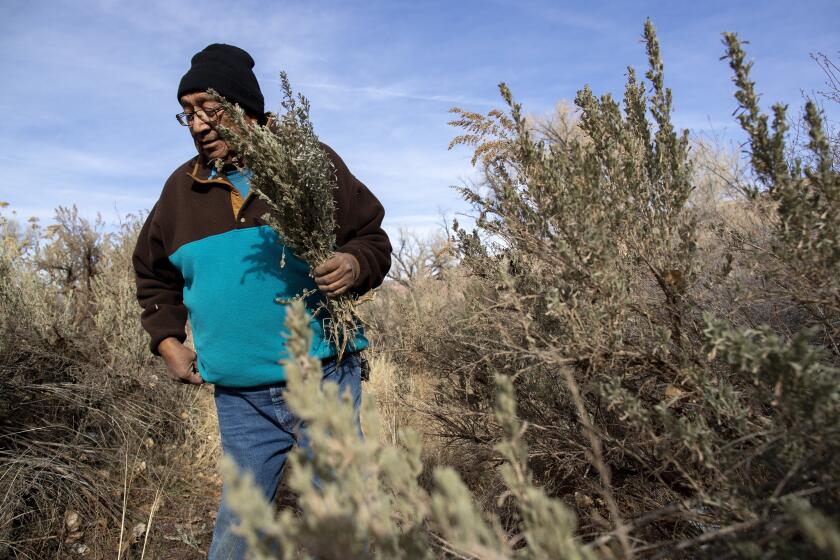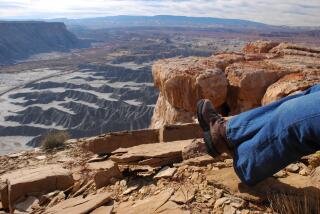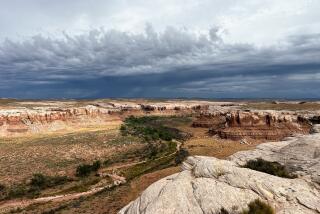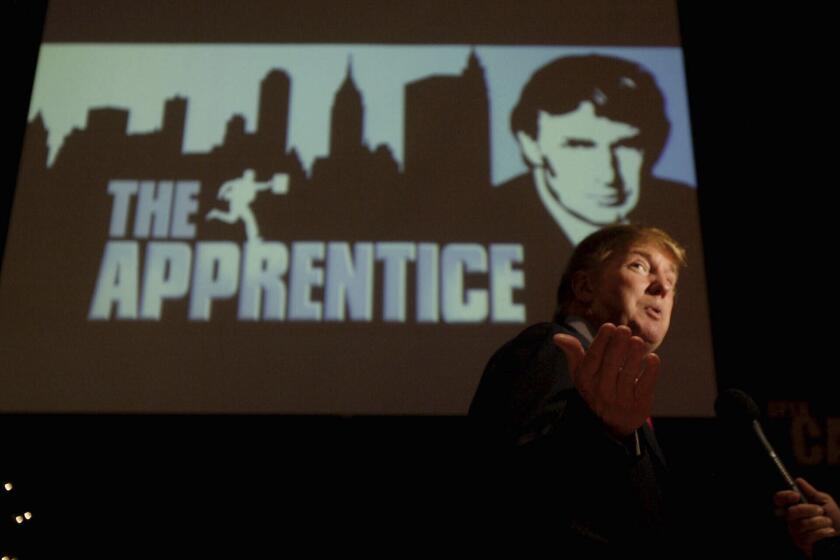Op-Ed: Biden brings back Bears Ears and Grand Staircase-Escalante, in all their glory
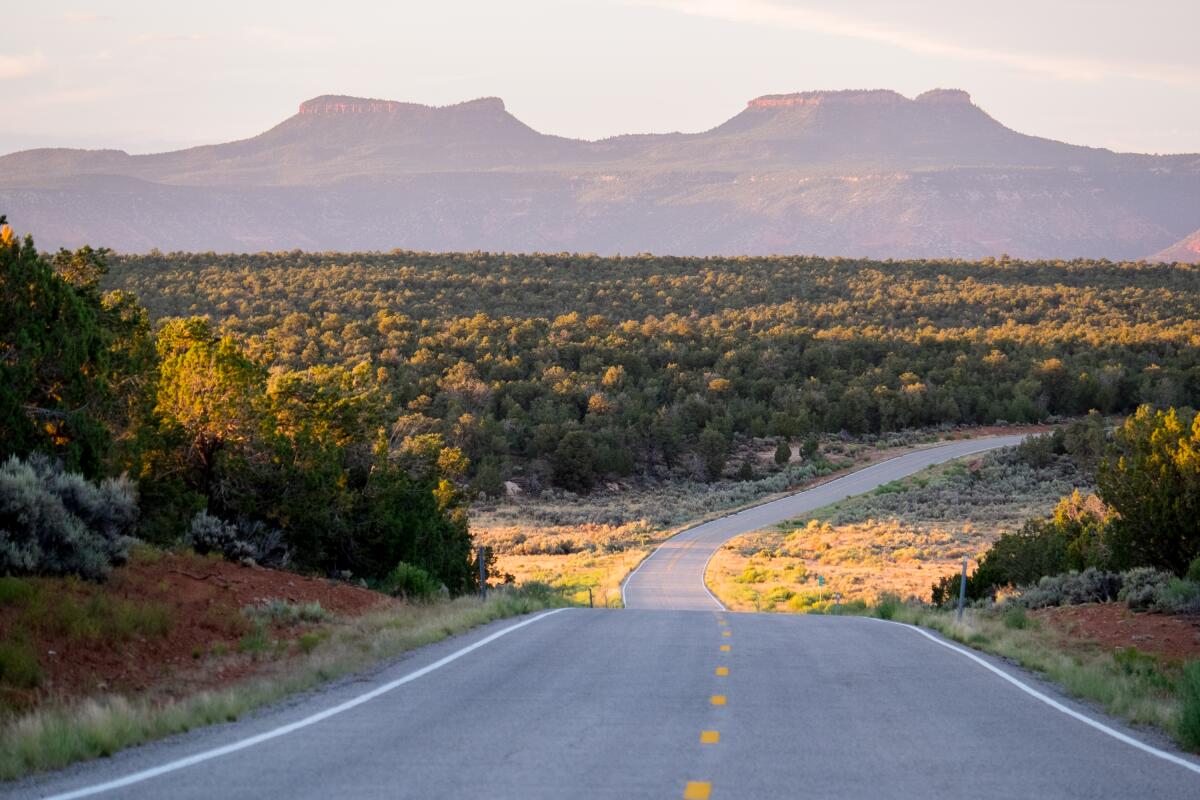
If the news on Friday had been broadcast on a split screen, the juxtaposition would have been startling.
One side would have pictured Secretary of the Interior Deb Haaland introducing President Biden as he prepared to sign proclamations reestablishing the full boundaries of two Utah national monuments. Haaland fought off tears as she thanked the president for his decision to “permanently protect the homelands of our ancestors.” This Pueblo woman stood on the White House lawn — an Indigenous person with power, in a place of power — and detailed the reasons why Bears Ears and Grand Staircase-Escalante deserved restoration.
The other screen would have captured Utah’s elected officials — nearly all white and male — as they proclaimed their outrage on Twitter and in Salt Lake City media. Their hyperbolic language exposed their privilege. They unwittingly revealed their disdain for tribal sovereignty and their increasingly dangerous and delusional dreams of fossil fuel bonanzas. Their refusal to address the climate emergency we face and their antipathy to public lands and Native- and science-based conservation of these lands evades reason.
Back at the signing ceremony in Washington, Biden said , “This may be the easiest thing I’ve done … as president.” He knows that valid arguments against restoration really don’t exist. He returned Bears Ears and Grand Staircase-Escalante to their “full glory,” along with restoring protection to the incredible biodiversity of the Northeast Canyons and Seamounts Marine National Monument.
Gina McCarthy, the administration’s national climate advisor, and Brenda Mallory, chair of the Council on Environmental Quality, amplified the president’s message: Preservation of these vast reaches of the Colorado Plateau “for all time, for all people” provides crucial wildlife habitat, fosters maximum ecological resilience across undamaged landscapes, and permanently safeguards sacred tribal homelands.
The members of the Utah congressional delegation seem incapable of such farsightedness. Instead, they issued a joint statement filled with bogus claims.
They decried a lack of “local input.” Not true. Haaland came to Utah to listen in April 2020. President Obama’s secretary of the Interior, Sally Jewell, held a packed hearing in Bluff, Utah, in 2016, inviting all sides to speak. Years of local and tribal research and discussion preceded the Obama administration’s proclamation of Bears Ears National Monument in December 2016.
The Utah politicians claimed that Bears Ears’ restoration “fails to include input and involvement of local tribes.” Absolutely not true; just ask the Bears Ears Inter-Tribal Coalition, five local Native nations — the Navajo Nation, the Ute Mountain Ute Tribe, the Ute Indian Tribe, the Hopi Tribe and the Pueblo of Zuni — that created the original Bears Ears monument proposal and just last month urged Biden to take action.
Utah’s senators and congressmen insisted that they had been prevented from creating a “permanent legislative solution” for these federal lands, whose development potential they covet. But over many years, they have consistently failed to negotiate in good faith, riddling their proposed bills with absolute loyalty to the fossil fuel industry and poison pills for public land preservation.
Their repeated claim that Utah’s citizens oppose the monuments is another lie. A full 74% of Utah residents support restoring the monuments, and both the San Juan and Grand county commissions — which embrace and border Bears Ears — also support restoration.
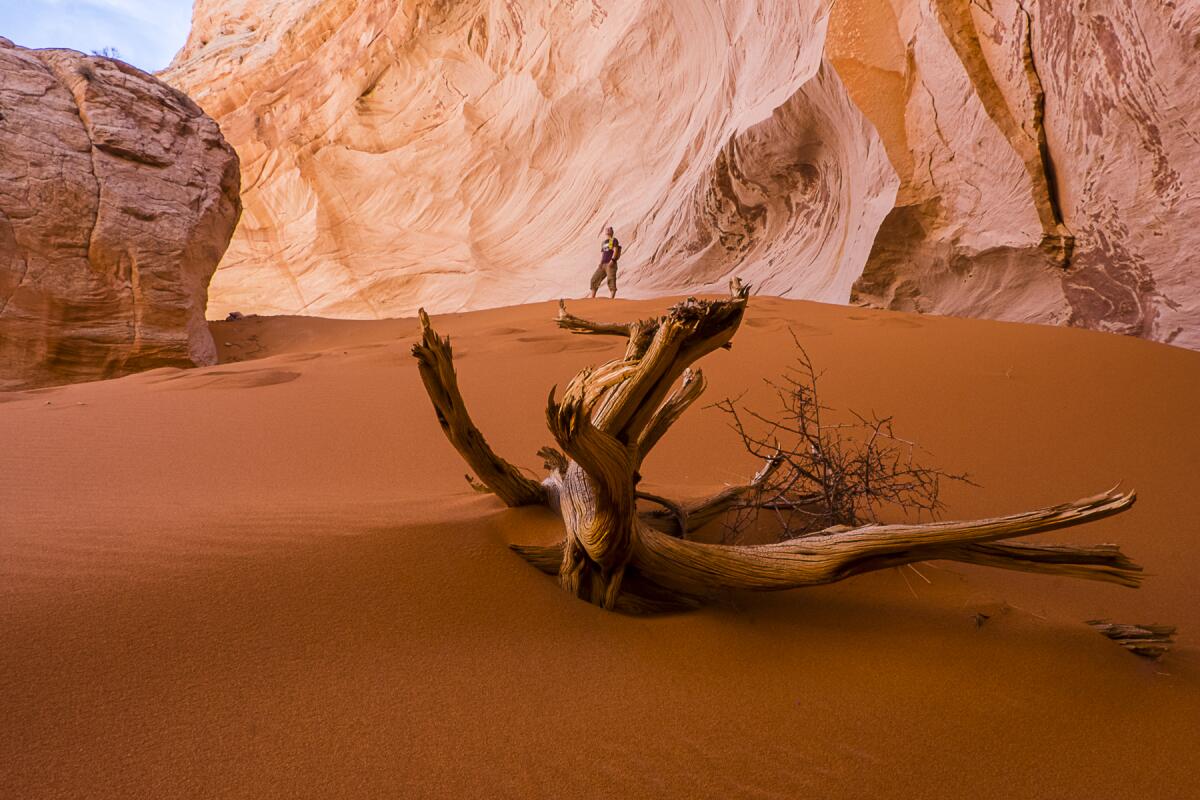
These officials want us to believe that future presidents will see the monuments as nothing more than political footballs, shrinking the boundaries in one cycle and restoring them in the next presidency. Ironically, they lobbied Donald Trump to begin the “cycle of abuse” they now decry.
Since Teddy Roosevelt, 17 presidents of both parties have used the Antiquities Act to establish 158 national monuments on public land. Congress later elevated many of these monuments to national parks. Like so many of his norm-breaking behaviors, Trump’s rescission of the original Bears Ears and Grand Staircase monuments was anomalous. American history has no other examples of presidents weaponizing the Antiquities Act against itself. I doubt we’ll see another.
On the imaginary dissonant split screen TV broadcast, you would have seen Mallory, the Council on Environmental Quality chair, point out that Trump’s December 2017 evisceration of the monuments — “the single largest elimination of protections of lands and waters in U.S. history” — sparked “the single largest mobilization for conservation in U.S. history.” Millions of Americans spoke up, and their voices were heard — “galvanizing a new and powerful vision for conservation in America.”
The shortsighted officials in Utah refuse to hear these voices.
Biden concluded his remarks with the opening lines of Edward Abbey’s “Desert Solitaire,” describing Abbey’s first morning as a park ranger in Arches National Park:
“This is the most beautiful place on Earth. There are many such places. Every man, every woman, carries in heart and mind the image of the ideal place, the right place, the one true home, known or unknown, actual or visionary.”
Abbey’s “most beautiful place” is “the slickrock desert” of Arches, Bears Ears and Grand Staircase. But in the next few lines of “Desert Solitaire,” he gives examples of how the “homing sentiment” works for others — “a gray gothic farmhouse two stories high at the end of a red dog road in the Allegheny Mountains” or “a cabin on the shore of a blue lake in spruce and fir country.” The aggregation of all our commitments to such ideal places — one by one, hundred by hundred, thousand by thousand, Native and non-Native — makes us a nation.
The president distilled Abbey’s idea in this same way. “Folks, that’s the United States of America — that’s America — a country we all share together, a country that we must protect together.”
Utah’s elected officials should take the president’s words to heart, abandon wasteful and unproductive threats to sue the federal government, and accept the protections and advantages these two national monuments bring to their state.
Americans have work to do together — to create visionary 21st-century master plans for both preserves, with full staffs; to empower the new Bears Ears Commission as Native co-managers of Bears Ears National Monument; and to guarantee adequate research funding for the paleontological, ecological and cultural treasures of Grand Staircase. Let us begin.
Utah writer and photographer Stephen Trimble serves on the board of Grand Staircase Escalante Partners. His latest book, a memoir, is “The Mike File: A Story of Grief and Hope.”
More to Read
A cure for the common opinion
Get thought-provoking perspectives with our weekly newsletter.
You may occasionally receive promotional content from the Los Angeles Times.
